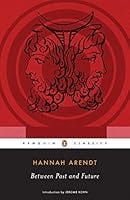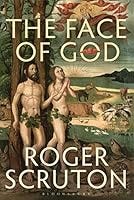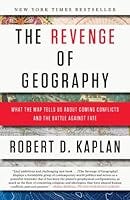
Starting today, I will share quotes from an essay from Between Past and Future. That essay is “Truth and Politics.” I hope to spur your interest so you’ll read and consider the essay. The relationship between truth and politics is more fraught than ever before in my lifetime (which reaches back even before the war in Vietnam). The current president lies so routinely that it’s becoming the norm. His minions follow suit. It’s time to think deeply about this issue and this essay is a great place to start. I’ll share excerpts from the essay in the following days.
Between Past and Future
Hannah Arendt
“Truth and Politics”
The subject of these reflections is a commonplace. No one has ever doubted that truth and politics are on rather bad terms with each other, and no one, as far as I know, has ever counted truthfulness among the political virtues. Lies have always been regarded as necessary and justifiable tools not only of the politician’s or the demagogue’s but also of the statesman’s trade. Why is that so? And what does it mean for the nature and the dignity of the political realm, on one side, and for the nature and the dignity of truth and truthfulness, on the other? Is it of the very essence of truth to be impotent and of the very essence of power to be deceitful? And what kind of reality does truth possess if it is powerless in the public realm, which more than any other sphere of human life guarantees reality of existence to natal and mortal men—that is, to beings who know they have appeared out of non-being and will, after a short while, again disappear into it? Finally, is not impotent truth just as despicable as power that gives no heed to truth? These are uncomfortable questions, but they arise necessarily out of our current convictions in this matter.
. . . .
Should justice be done if the world’s survival is at stake? And the only great thinker who dared to go against the grain of the question was Immanuel Kant, who boldly explained that the “proverbial saying . . . means in simple language: ‘Justice shall prevail, even though all the rascals in the world should perish as a result.’” Since men would not find it worth while to live in a world utterly deprived of justice, this “human right must be held sacred, regardless of how much sacrifice is required of the powers that be . . . regardless of what might be the physical consequences thereof.”1 But isn’t this answer absurd? Doesn’t the care for existence clearly precede everything else—every virtue and every principle? Is it not obvious that they become mere chimeras if the world, where alone they can be manifested, is in jeopardy? Wasn’t the seventeenth century right when it almost unanimously declared that every commonwealth was duty bound to recognize, in Spinoza’s words, “no higher law than the safety of [its] own realm”?
. . . .
[I]f we put truth in . . . place [of justice]—“Fiat veritas, et pereat mundus”—the old saying sounds even more implausible. If we understand political action in terms of the means-end category, we may even come to the only seemingly paradoxical conclusion that lying can very well serve to establish or safeguard the conditions for the search after truth—as Hobbes, whose relentless logic never fails to carry arguments to those extremes where their absurdity becomes obvious, pointed out long ago. And lies, since they are often used as substitutes for more violent means, are apt to be considered relatively harmless tools in the arsenal of political action.
. . . .
For while we may refuse even to ask ourselves whether life would still be worth living in a world deprived of such notions as justice and freedom, the same, curiously, is not possible with respect to the seemingly so much less political idea of truth. What is at stake is survival, the perseverance in existence (in suo esse perseverare), and no human world destined to outlast the short life span of mortals within it will ever be able to survive without men willing to do what Herodotus was the first to undertake consciously—namely, to say what is. No permanence, no perseverance in existence, can even be conceived of without men willing to testify to what is and appears to them because it is.
. . . .
Throughout history, the truth-seekers and truthtellers have been aware of the risks of their business; as long as they did not interfere with the course of the world, they were covered with ridicule, but he who forced his fellow-citizens to take him seriously by trying to set them free from falsehood and illusion was in danger of his life: “If they could lay hands on [such a] man . . . they would kill him,” Plato says in the last sentence of the cave allegory. The Platonic conflict between truthteller and citizens cannot be explained by the Latin adage, or any of the later theories that, implicitly or explicitly, justify lying, among other transgressions, if the survival of the city is at stake. No enemy is mentioned in Plato’s story; the many live peacefully in their cave among themselves, mere spectators of images, involved in no action and hence threatened by nobody. The members of this community have no reason whatever to regard truth and truthtellers as their worst enemies, and Plato offers no explanation of their perverse love of deception and falsehood.
. . . .
Hobbes, but not Plato, consoled himself with the existence of indifferent truth, with “subjects” about which “men care not”—e.g., with mathematical truth, “the doctrine of lines and figures” that “crosses no man’s ambition, profit or lust.” For, Hobbes wrote, “I doubt not, but if it had been a thing contrary to any man’s right of dominion, or to the interest of men that have dominion, that the three angles of a triangle should be equal to two angles of a square; that doctrine should have been, if not disputed, yet by the burning of all books of geometry, suppressed, as far as he whom it concerned was able.”
. . . .
[S]ince facts and events—the invariable outcome of men living and acting together—constitute the very texture of the political realm, it is, of course, factual truth that we are most concerned with here. Dominion (to speak Hobbes’ language) when it attacks rational truth oversteps, as it were, its domain, while it gives battle on its own ground when it falsifies or lies away facts. The chances of factual truth surviving the onslaught of power are very slim indeed; it is always in danger of being maneuvered out of the world not only for a time but, potentially, forever. Facts and events are infinitely more fragile things than axioms, discoveries, theories—even the most wildly speculative ones—produced by the human mind; they occur in the field of the ever-changing affairs of men, in whose flux there is nothing more permanent than the admittedly relative permanence of the human mind’s structure. Once they are lost, no rational effort will ever bring them back. Perhaps the chances that Euclidean mathematics or Einstein’s theory of relativity—let alone Plato’s philosophy—would have been reproduced in time if their authors had been prevented from handing them down to posterity are not very good either, yet they are infinitely better than the chances that a fact of importance, forgotten or, more likely, lied away, will one day be rediscovered.
Arendt, Hannah; Kohn, Jerome, introduction. Between Past and Future (Penguin Classics) (p. 227). Kindle Edition.
In pornography the face has no role to play, other than to be subjected to the empire of the body. Kisses are of no significance, and eyes look nowhere since they are searching for nothing beyond the present pleasure. All this amounts to a marginalization, indeed a kind of desecration, of the human face. And this desecration of the face is also a cancelling out of the subject.
Violence and cruelty are related to pornography and also seek to erase the faces—and sometimes the live— of the victims.
Europe, it appears, offered the perfect degree of environmental difficulty, challenging its inhabitants to rise to greater civilizational heights, even as it still lay in the northern temperate zone, fairly proximate to Africa, the Middle East, the Eurasian steppe, and North America; thus its peoples were able to take full advantage of trade patterns as they burgeoned in the course of centuries of technological advancements in navigation and other spheres.





